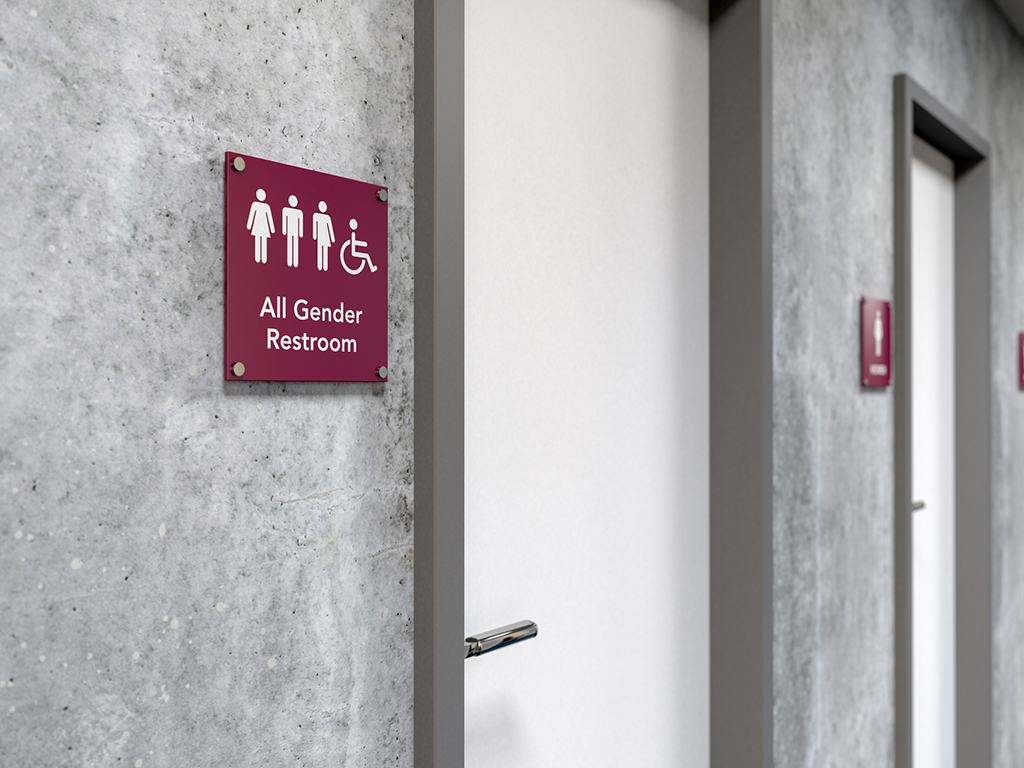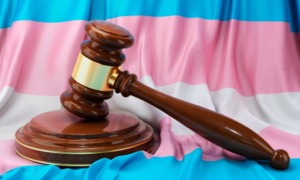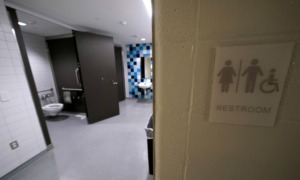Erika Leonard, the mother of a transgender son, says the U.S. Supreme Court had an opportunity this week in a closely watched bathroom-access case to make a historic decision “promoting cultures of safety and respect in schools.” Instead, said Leonard, who is also the California program director for KidPower, a personal safety organization for transgender youth, the high court’s action will have the opposite effect, “devaluing and segregating” those students.
But going forward, she said, nothing prevents schools from “exploring creative ways to be fair and equitable to all students.” Despite the legal limbo they now find themselves in, “parents and teachers and school boards still have flexibility to say, ‘Are there other options? Can we create an all-gender bathroom?’”
In the wake of the Supreme Court decision, civil rights attorneys and LGBT advocates are reaffirming their legal strategy to challenge discrimination based on gender identity. “This should not be a question. Transgender students coast to coast are protected under federal law,” said Jennifer Pizer, senior counsel at Lambda Legal, a national LGBT legal organization. “It’s just a shame that this litigation is going to take longer than it otherwise would have.”
The high court’s decision dealt a blow to Gavin Grimm, a transgender high school student in Virginia who sued the Gloucester County School Board for access to the boys’ bathroom at school. The Supreme Court, which had scheduled oral arguments in the case for later this month, on Monday annulled a lower court ruling and sent the lawsuit back to the appellate court to be argued again.
The Supreme Court had declined to hear the first major case in U.S. history on whether transgender people are protected from sex discrimination.
That means the high school senior will probably graduate before there is a final decision. But Grimm, 17, vowed to fight on. “I’m in for the long haul,” he said in a call to reporters on Monday, adding, “It’s not just about bathrooms. It’s about the right of trans people to exist in public spaces.”
“There are so many instances of trans kids who are runaways or who have real mental health issues because they don’t find support within their family or their community,” said David Lugn, 63, who manages a bookstore in San Francisco. Lugn, whose transgender son is a high school sophomore, said he’d be very concerned if the teen was denied access to the boys’ bathroom at school. “That’s a very vulnerable age, and it could make a really awful impression. It has to make a kid feel, ‘Who am I?’”
Trump administration changes course
The Grimm case reached the high court after the Fourth U.S. Circuit Court of Appeals ruled last year in the boy’s favor. The Fourth Circuit relied on joint guidance issued by the Education and Justice departments under the Obama administration interpreting Title IX, the 1972 federal law barring sex discrimination in education, to mean that transgender students must be allowed to use school facilities such as bathrooms and locker rooms that match their gender identity.
Last month the Trump administration abruptly withdrew the trans-friendly policy, stating that the prior guidance did not “contain sufficient legal analysis or explain the interpretation was consistent with the language of Title IX.”
The American Civil Liberties Union, which represents Grimm, responded that the Trump administration’s revocation of the guidance was “disappointing.”
Now, the appellate court will have to decide whether the definition of “sex” under Title IX includes gender identity — a process that could take years. “This is a detour, not the end of the road,” ACLU attorney Joshua Block said in a statement.
In the meantime, some LGBT advocates say they will continue to engage with the new administration. “President Trump indicated that he supports trans rights in some ways, and we’ll have to be making the case that these are kids and helping them is the right thing to do,” said Richard Zbur, executive director of Equality California, a statewide civil rights organization.
For now it will be up to states or local school districts to determine policies for transgender students who need access to public facilities at school. Zbur anticipates that more states where there is public support will follow California’s example and adopt laws that protect transgender youth.
Currently 19 states — Arkansas, California, Colorado, Connecticut, Illinois, Iowa, Maine, Maryland, Massachusetts, Minnesota, Nevada, New Hampshire, New Jersey, New York, North Carolina, Oregon, Rhode Island, Vermont, Washington state — plus the District of Columbia have adopted policies that prohibit bullying or discrimination based on sexual orientation or gender identity, according to a report released last December by researchers at the New York-based advocacy group Human Rights Watch.































